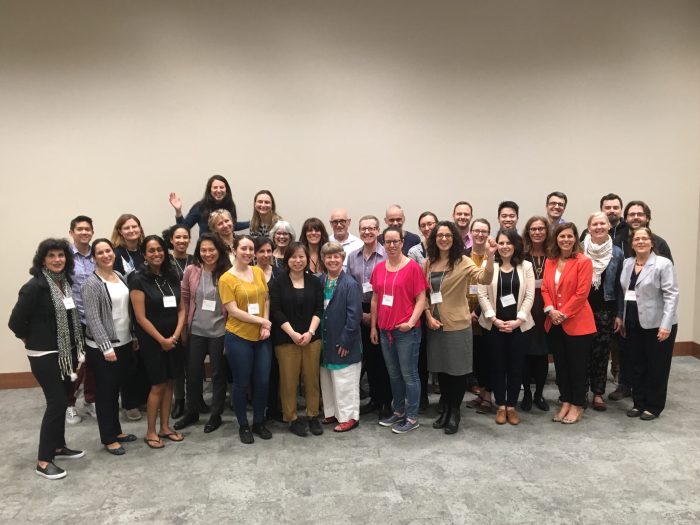This is part of an ongoing series of articles to raise the profile of education, teaching and learning in the Faculty of Medicine and to advance the Faculty’s Education Strategic Plan (2017-22).
Over 30 Faculty of Medicine members from a range of disciplines and professions participated in the 2019 Your Teaching Journey at McGill workshop on May 15-16, gaining new insights on best teaching practices.
Organized by the Faculty Development Office, the workshop is offered every two years and attracts both new and long-term faculty members looking to enhance their teaching skills and knowledge.
“Faculty came away from this workshop with new ideas and enthusiasm about teaching,” said Dr. Miriam Boillat, Associate Dean, Faculty Development. “There was a genuine sense of energy during the workshop and I believe that energy will transfer into classrooms and clinical settings.”
Workshop topics included using art as an analogy for teaching and learning, improving the learning environment, using assessment to promote learning, assessment as part of the clinical learning experience, graduate student supervision in biomedical research, feedback, and approaches to engaging learners.
People involved in workshop program development and delivery include Dr. Miriam Boillat, Annie Chevrier, Dr. Evelyn Constantin, Mark Daly, Dr. Michelle Elizov, Dr. Audrey Juras, Dr. Preetha Krishnamoorthy, Dr. David Ragsdale, Sophie Vaillancourt, Adriana Venturini and Dr. Jeffrey Wiseman.
Participants spoke highly of the workshop.
“It’s an opportunity to improve on teaching and I’m early days in my teaching career so I thought it would be a great opportunity to learn some new skills in clinical settings and in the classrooms,” said Dr. Julia Burnier, a workshop participant from the Department of Pathology and the Gerald Bronfman Department of Oncology. “I really liked some of the practical tips on how to assess students especially when you have a varied group of students.”
“The session about feedback was really good,” said Dr. Livia Garzia a workshop participant from the Experimental Surgery Department. “They had real-life scenarios that we addressed in terms of giving feedback. It’s nice to gain perspectives from people with more experience. The facilitators were really good.”
Others praised the participatory aspects of the workshop.
“Everybody was really engaged,” said Mariska Burger from the School of Communication Sciences and Disorders. “The activities that they’ve done throughout the day have been engaging. There’s a good balance between presentations and engaging group activities, and the facilitators have been excellent”
Workshop participants were assigned to tables in order to foster an interprofessional and interdisciplinary mix, encouraging cross-pollination and a rich exchange of ideas.
May 30, 2019

